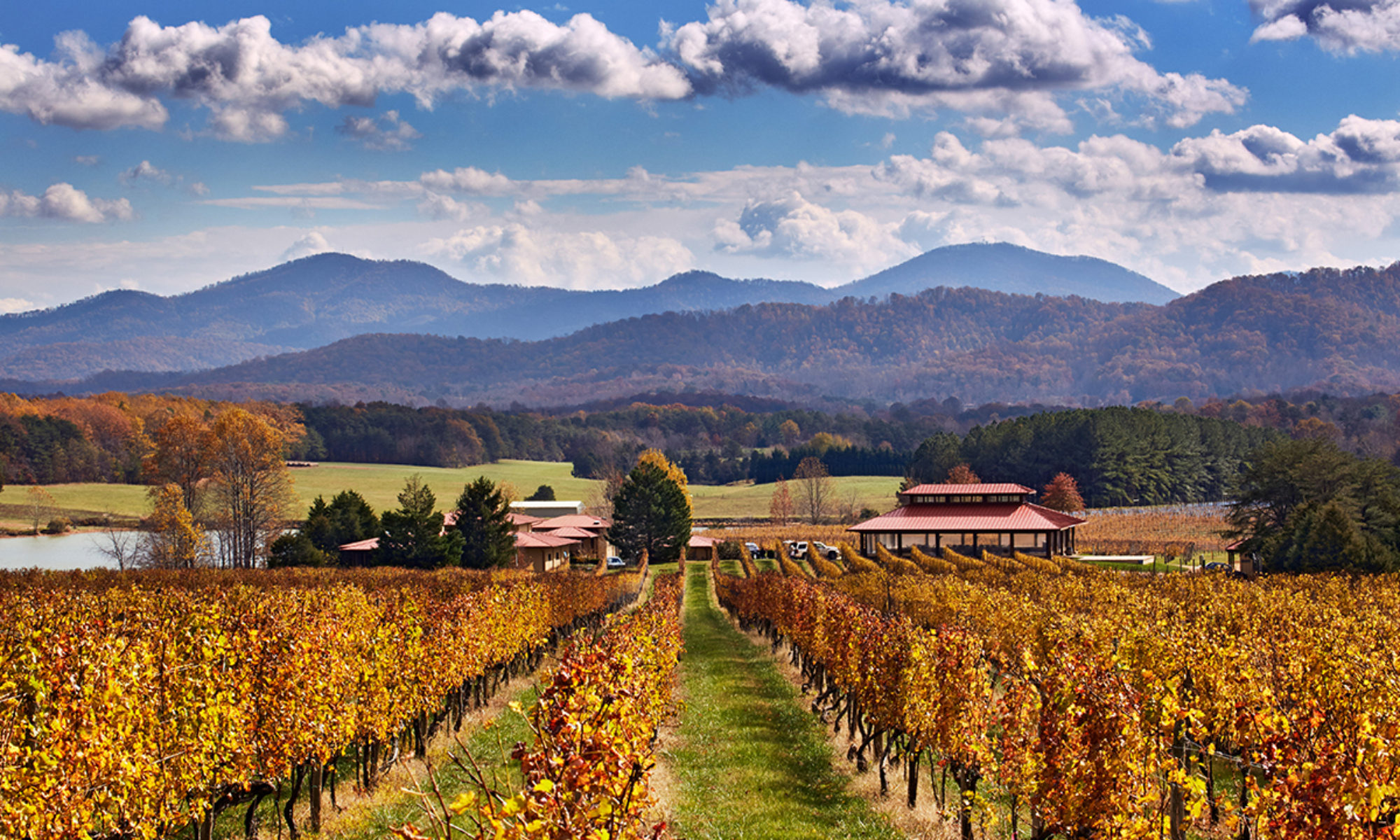Located technically in Charlottesville but in fact some 15 miles northwest of the city, and closer to Crozet. The unusual name for the winery derives from a short story by founder Jill Summers’ father, Nobel Laureate William Faulkner. Jill and her husband Paul Summers bought the 400-acre farm in the 1970s. The five acres of vines were planted in 2003 by their son Paul III Summers, and the winery’s tasting room was opened only in 2016.
Wine. A small winery, but one of the 100 best wineries in Virginia. Paul III Summers runs the show, including winemaking. Two Knights’ Gambit wines were for the first time awarded gold medals at the 2025 annual Virginia Governor’s Cup state-wide wine competition: their 2023 Pinot Grigio, and their 2021 vintage Petit Verdot.
Setting. Two stars. Set among the rolling hills of Albemarle County facing the Blue Ridge Mountains, with excellent views, which a large covered porch with rocking chairs helps you enjoy. Ponies, deer and dogs wander freely. Plenty of seating inside the main house, on the porch, and around the picnic tables. On a dirt road that can seem a bit like the middle of nowhere (of course, if you’re a Faulner fan, it may be more like the Center of the Universe). No food available at the winery so bring your own. Aside from wine, the winery offers yoga, croquet and beanbag toss.
Stories. William Faulkner in Virginia. Few people outside of Charlottesville are aware that Nobel Laureate William Faulkner spent the last five years of his life in Virginia, and that UVA is a world-renowned center of Faulkner studies. One of the most important American writers of the 20th century, indeed of any time, Faulkner won the Nobel Prize for literature in 1949, two National Book Awards (1951 and 1955), and a Pulitzer Prize (1955). His many novels included The Sound and the Fury, Absalom Absalom!, and As I Lay Dying, for the most part set in a fictional town in his native Mississippi. He was attracted to Charlottesville by the presence of his only daughter, Jill Faulkner Summers, and her family. Faulkner arrived on the campus of the University of Virginia in February 1957. He may well have been the most famous writer to spend time at UVA since Thomas Jefferson, and Jefferson did not teach classes! As Writer-in-Residence Faulkner, between February 1957 and May 1958, spoke at 36 different public events, gave two formal addresses, read a dozen times from his works and answered more than 1,400 questions from audiences. He also traveled to VMI and Mary Washington College as well. When he wasn’t lecturing, or writing, he could be seen strolling through the Academical Village in his patent overcoat and collegiate tweed suit. Faulkner remained in Charlottesville until his death in 1962. Tapes of Faulkner’s events and conversations enabled UVA to establish a web-based archive, “Faulkner at Virginia,” a collection which contains 28+ hours’ worth of dialogue. As one English professor put it, “It’s amazing that he liked it here so much that he bequeathed his papers and manuscripts to the university. It has allowed UVA to become the world’s premier center for Faulkner studies, with scholars traveling here from all around the world to study and access the archives.” The author’s legacy in Charlottesville extends beyond the university grounds. His daughter stayed in the area until her death in 2008, and became master of hounds at Farmington Hunt Club in 1968 (Faulkner had been an avid fox hunting enthusiast). Her son, Paul III Summers became a brewer, and in 1999 entered the wine industry as the vineyard manager at Kluge Estates, was cellar master at Barboursville and estate manager at Blenheim before planting his own vines and establishing Knight’s Gambit Vineyard on his parents’ White Hall farm in 2003. “While it was well-known that my grandfather liked to drink and preferred bourbon, not a lot of people know he was a big wine aficionado,” Paul says. “He loved a good bottle and had the kind of vintages imported to Mississippi that would probably run you between $1,500 and $2,000 for a bottle today.”Put that among literature facts you didn’t know before.
